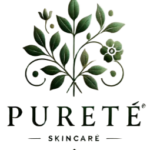Table of Contents
- Introduction
- Understanding Acne and Its Causes
- Why Organic Skincare Can Help Acne-Prone Skin
- Key Organic Ingredients That Fight Acne
- How to Build an Effective Organic Skincare Routine for Acne
- Lifestyle Factors That Support Clear Skin
- Common Mistakes to Avoid When Treating Acne Naturally
- Tips for Maintaining Long-Term Results
- When to Seek Professional Advice
- Conclusion
1. Introduction
Acne is a common skin concern that affects people of all ages, often causing frustration and self-consciousness. While conventional treatments rely on harsh chemicals, antibiotics, or synthetic ingredients, organic skincare offers a gentler, holistic alternative.
By using natural, plant-based ingredients that soothe inflammation, balance oil production, and support skin healing, acne-prone individuals can achieve clearer skin without the side effects often associated with chemical treatments. This guide explores natural solutions that truly work for acne-prone skin.

2. Understanding Acne and Its Causes
Acne occurs when hair follicles become clogged with oil, dead skin cells, and bacteria. Several factors contribute to breakouts, including:
- Excess Sebum Production: Overactive oil glands create a favorable environment for bacteria.
- Bacterial Growth: Propionibacterium acnes can trigger inflammation and pimples.
- Hormonal Imbalances: Androgens increase sebum production, particularly during adolescence or stress.
- Inflammation: Skin reacts to irritants, resulting in redness and swelling.
- Lifestyle Factors: Diet, stress, and sleep patterns influence acne severity.
Addressing these underlying factors is key to long-term acne management.
3. Why Organic Skincare Can Help Acne-Prone Skin
Organic skincare uses plant-based, non-comedogenic ingredients that are gentle on sensitive, acne-prone skin. Unlike conventional products, organic formulations:
- Avoid harsh chemicals and synthetic fragrances that can aggravate acne.
- Support the skin’s natural barrier, preventing dryness and irritation.
- Contain anti-inflammatory and antibacterial botanicals to calm breakouts.
- Help balance sebum production, reducing the likelihood of clogged pores.
By focusing on natural ingredients, organic skincare addresses both the symptoms and root causes of acne.
4. Key Organic Ingredients That Fight Acne
- Tea Tree Oil: Natural antibacterial properties help reduce acne-causing bacteria.
- Aloe Vera: Soothes irritation and reduces inflammation.
- Witch Hazel: Tightens pores and controls excess oil production.
- Chamomile Extract: Calms redness and promotes healing.
- Jojoba Oil: Balances sebum without clogging pores.
- Green Tea Extract: Provides antioxidants that fight free radicals and reduce inflammation.
- Niacinamide (Vitamin B3): Helps improve skin texture and regulate oil production.
These ingredients can be found in cleansers, toners, serums, and moisturizers tailored for acne-prone skin.
5. How to Build an Effective Organic Skincare Routine for Acne
Morning Routine:
- Cleanser: Gentle organic foaming or gel cleanser to remove overnight oil and impurities.
- Toner: Alcohol-free toner with witch hazel or chamomile.
- Serum: Lightweight, anti-inflammatory serum containing green tea or niacinamide.
- Moisturizer: Non-comedogenic, oil-balancing moisturizer.
- Sunscreen: Broad-spectrum, organic sunscreen to protect from UV damage.
Night Routine:
- Cleanser: Double cleanse if wearing makeup or sunscreen.
- Treatment Serum: Tea tree oil or aloe-based serum applied to active breakouts.
- Moisturizer: Slightly richer moisturizer for overnight hydration.
- Optional Spot Treatment: Concentrated natural treatments for persistent pimples.
Consistency and gentle care are essential — over-cleansing or harsh treatments can worsen acne.
6. Lifestyle Factors That Support Clear Skin
- Balanced Diet: Reduce refined sugars and dairy; increase antioxidant-rich fruits and vegetables.
- Hydration: Drink plenty of water to maintain skin elasticity and flush toxins.
- Stress Management: Meditation, yoga, or adequate sleep helps regulate hormones that trigger acne.
- Exercise: Boosts circulation and supports overall skin health.
- Hygiene: Regularly clean pillowcases, phone screens, and makeup brushes to prevent bacteria buildup.
A holistic approach amplifies the benefits of organic skincare.
7. Common Mistakes to Avoid When Treating Acne Naturally
- Using too many active ingredients at once, causing irritation.
- Skipping moisturizers due to fear of oiliness, leading to dehydrated skin.
- Picking or squeezing pimples, which spreads bacteria and scars.
- Switching products too frequently, preventing the skin from adjusting.
- Ignoring sunscreen, as UV exposure can worsen acne scars and hyperpigmentation.
8. Tips for Maintaining Long-Term Results
- Stick to a consistent skincare routine and give products time to work (typically 4–6 weeks).
- Adjust routines seasonally — lighter products in humid weather, richer hydration during dry periods.
- Incorporate gentle exfoliation 1–2 times per week to remove dead skin cells without causing irritation.
- Track triggers such as diet, stress, or environmental changes to prevent flare-ups.
- Combine topical care with gut-friendly foods, probiotics, and vitamins for overall skin support.
9. When to Seek Professional Advice
While organic skincare can manage mild to moderate acne, consult a dermatologist if:
- Acne is severe, cystic, or painful.
- There is no improvement after several months of consistent care.
- Scarring or hyperpigmentation is developing.
A professional can guide advanced treatments while complementing your organic skincare routine.
10. Conclusion
Acne-prone skin requires a gentle yet effective approach, and organic skincare offers natural solutions that address both symptoms and underlying causes. By selecting the right plant-based ingredients, maintaining a consistent routine, and supporting skin health through lifestyle choices, you can achieve clearer, healthier skin without relying on harsh chemicals.
In Singapore’s tropical climate, balancing oil control, hydration, and inflammation with organic products ensures that acne-prone skin remains calm, resilient, and radiant all year round.
